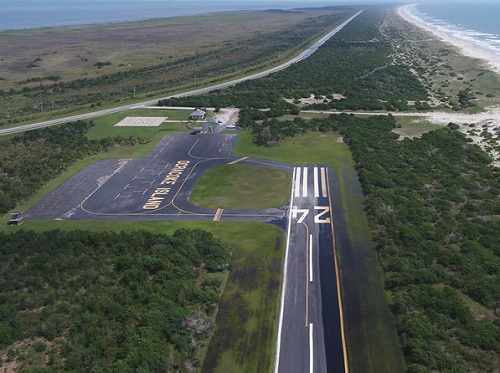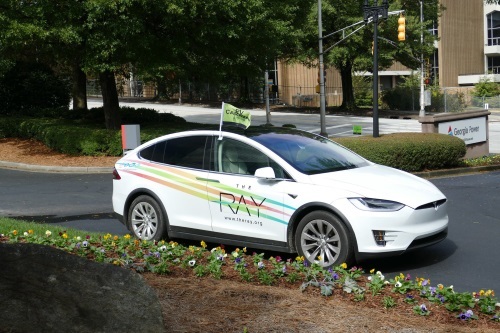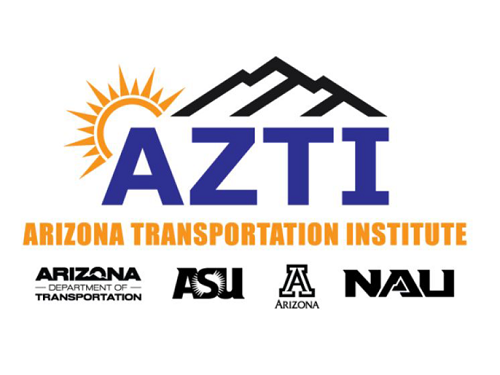The Ray – a Georgia-based transportation innovation non-profit – recently signed separate charters with the Texas Department of Transportation Austin District, Central Texas Regional Mobility Authority, and the City of Austin to pilot new technologies and “green energy solutions” for the Central Texas region.
[Above photo via The Ray.]
“Central Texas is a dynamic growing community with a tech-based economy and a highly educated workforce,” explained Tucker Ferguson, district engineer for TxDOT’s Austin District, in a statement.
“The community expects government entities like TxDOT, the City of Austin, and the Mobility Authority to use new technology and innovative strategies to enhance mobility, protect the environment, improve quality of life and increase economic opportunity,” he added. “The partnership with The Ray is a great opportunity to bring additional expertise and experience to our work.”
“In Georgia, The Ray has partnered with state and industry leaders to create the world’s first sustainable highway living laboratory, and we are excited to bring our experience in transportation innovation to Central Texas,” noted Laura Rogers, director of strategic partnerships at The Ray.
[Editor’s note: The American Association of State Highway and Transportation Officials Center for Environmental Excellence recently interviewed Allie Kelly, executive director of The Ray, as part of its Environmental Technical Assistance Program or ETAP Podcast series. Click here to listen to that interview.]
“Focusing on infrastructure that supports future-forward transportation technology through regional collaboration allows for a seamless transition of service across jurisdictions and provides a model to scale similar initiatives across the state and nation,” she said.
Rogers noted this new Central Texas region collaboration is focusing on “facilitating, executing, promoting and building” projects that prioritize road safety, improve infrastructure resiliency, plus protect and restore the environment.
Those projects include but are not limited to connected autonomous vehicle infrastructure, solar-powered photovoltaic electric-vehicle or EV charging stations, and in-road dynamic wireless EV charging, she said.
The Ray’s 501c3 nonprofit status will open additional opportunities to collaborate between the public and private sectors by acting as a bridge to accelerate project delivery while leveraging “innovative funding mechanisms,” explained Harriet Langford, president and founder of The Ray.
By working with the various tech companies moving to Austin and those that already call Austin home, this new collaboration will bring industries together to create better results that directly benefit the citizens of Texas through job creation, resilient roads, and cleaner air, she said.
“Much like my father Ray C. Anderson shared his model for circular business with companies around the world, The Ray is ready to scale our record of transportation innovation with states across the country,” Langford noted. “Georgia and Texas are both states with an independent streak, and together with all three agencies, The Ray will expand on our projects to create smarter and safer transportation infrastructure for Texans.”
 Electric Vehicles
Electric Vehicles



